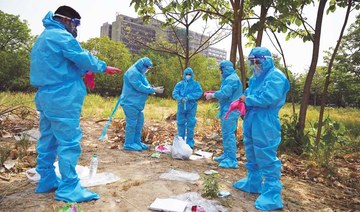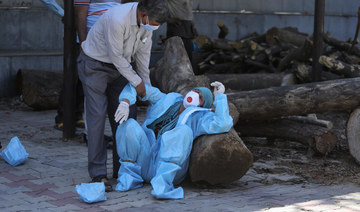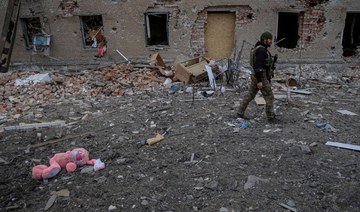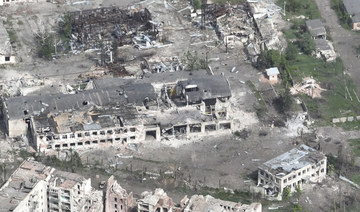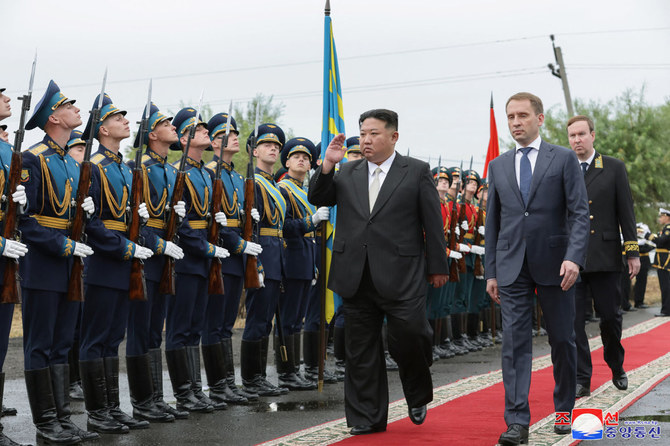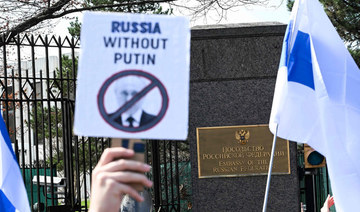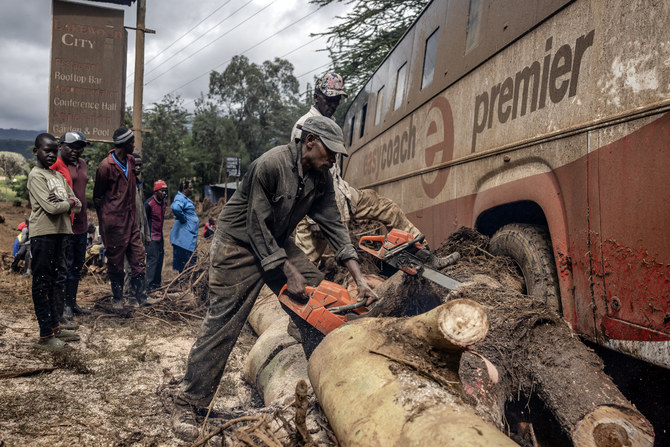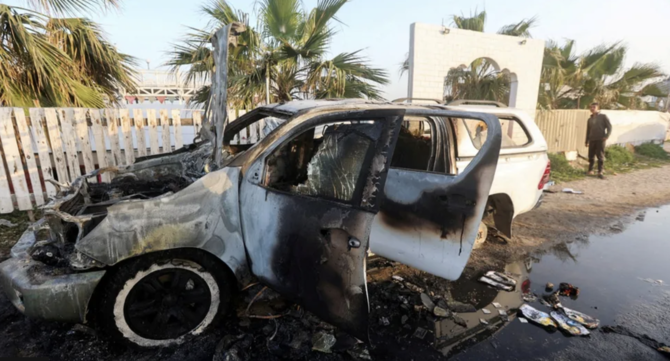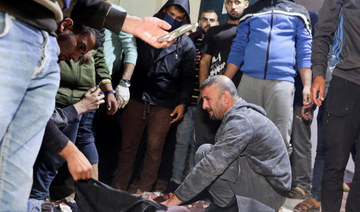NEW DELHI: India’s plans to inoculate 800 million residents aged 18 and above — as part of a new vaccination drive from Saturday — hit a snag after only six of 29 states participated in the campaign due to an acute shortage of COVID-19 vaccines.
It comes amid an unprecedented surge in coronavirus cases, with more than 400,000 infections and 3,500 deaths registered in the past 24 hours, according to official data.
It has been a devastating month for the South Asian nation of 1.3 billion, which reported 100,000 cases every day from April 7 until a record spike of 400,000 infections on May 1.
Meanwhile, the positivity rate, which stood at 6.1 percent in early April, has surged to 22 percent, with 22 out of 100 people testing positive for the disease.
Faced with mounting criticism over his administration’s handling of the COVID-19 crisis, Inidan Prime Minister Narendra Modi announced a new vaccination drive on April 21, which was set to begin from May 1.
“We could not start the vaccination drive for all age groups from Saturday due to the shortage of vaccines,” Munidra Nath Ngatey, director of health services and immunization in the northeastern state of Assam, told Arab News on Saturday.
“We have ordered extra vaccines but are not sure when they are arriving. Till then, we will focus on the people above 45 that we have been doing since January,” Ngatey said. India launched a vaccination drive on Jan. 16 with the ambitious goal to inoculate frontline health workers and 400 million people aged 45 and above by July.
However, by the end of April, only 10 percent of Indians had received their first dose of the vaccine, while 1.5 percent had received both doses, despite the country being one of the biggest producers of the vaccine in the world.
Health experts called the crisis “a failure” and the result of a “lack of planning.”
“The fact remains that there are not enough vaccines for the population. It’s another public relations exercise by the government,” Dr. T. Jacob John, an eminent epidemiologist at the Christian Medical College (CMC) in the south Indian city of Vellore, told Arab News.
“The government is saying the right thing if it cannot do the right thing. I wonder who is in command of the vaccination and COVID-19 strategy,” he said.
In December, India had approved two vaccines for emergency use: The Oxford-AstraZeneca produced domestically as Covishield by the Pune-based Serum Institute of India (SII) and a local product called Covaxin, made by Hyderabad-based Bharat Biotech, an Indian company.
Recently, SII Chief Adar Poonawala said that his company could produce about 60-65 million doses a month while Bharat Biotech has an estimated production capacity of about 5 million doses a month, which is expected to double once a new manufacturing facility in Bengaluru starts operations.
To inoculate 400 million people aged 45 and above, India needs 800 million vaccine doses by August. However, with the current production rate, experts say it might be challenging to meet targets.
“Assam had the target of vaccinating 7 million people by April, but we have inoculated close to 2.5 million so far. It is due to the shortage of vaccine,” Ngatey said.
The western Indian state of Maharashtra was one of six states to kickstart the vaccination drive on Saturday.
“In Mumbai (the state capital), we started a vaccination drive for people above the age of 18 today, but it is just symbolic as we don’t have vaccines in stock,” Mumbai Mayor Kishori Kishore Pendekar told Arab News.
“The state is far ahead in vaccination than other states, and we can make great strides if the vaccines are available in large numbers,” he said.
To overcome the vaccine shortage, India allowed foreign vaccines such as Sputnik, Pfizer, Moderna, Johnson & Johnson and others, to enter the market in mid-April.
However, Dr. John questioned PM Modi’s reasons for promoting jabs not licensed in India, adding: “We had asked the government to set up a war room to monitor COVID-19 (cases) but nothing happened, and the government is indulging into the whimsical decision.”
“The government is promoting the sale of vaccines which are not registered . . . The government has not ordered vaccines in advance, and this shortage was bound to happen when there is no advance order for vaccines from the manufacturers,” he said.




